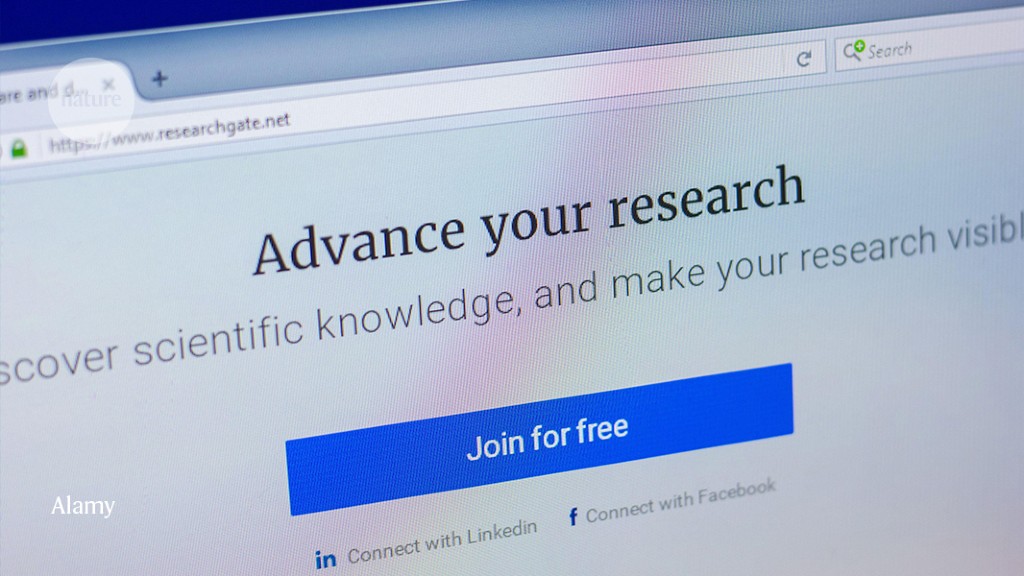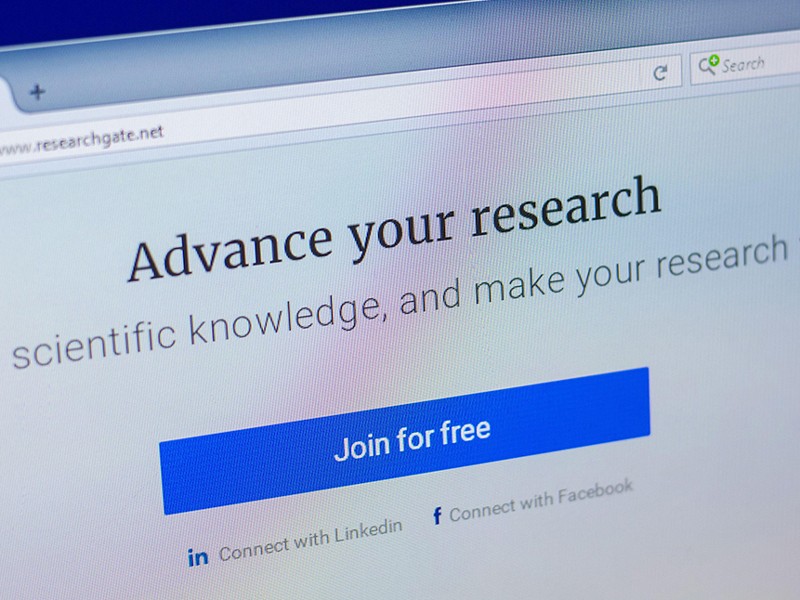A landmark court case in which two major academic publishers sued the popular website ResearchGate for hosting 50 of their copyrighted papers has come to a close — although both sides say that they will appeal. The court in Munich, Germany, has not only prohibited ResearchGate from hosting the papers, but also ruled that it is responsible for copyright-infringing content uploaded on its platform. The decision has the potential to set a precedent for further restrictions on the site, which has 20 million users worldwide.
Neither side emerged a clear winner in this case, says Nancy Sims, a librarian at the University of Minnesota in Minneapolis who specializes in copyright issues. “Each party got some pieces that were very favourable to them and some pieces that were less favourable to their claims.”
Elsevier, which is based in Amsterdam, and the American Chemical Society (ACS), in Washington DC, filed the lawsuit against ResearchGate in a regional court in Munich in 2017, alleging that the site had made copyrighted material freely available. ResearchGate said that it could not be held responsible for the content, which was uploaded by authors.
“We are pleased with the verdict,” says a spokesperson for the Coalition for Responsible Sharing, a group of publishers — including Elsevier and the ACS — that was formed in 2017. “The clear aim of the legal action was to clarify the responsibilities of ResearchGate for the content that it illicitly distributes on its site, which it does for its own commercial gain.”
“We believe that the outputs of scientific research, the majority of which is funded by public money, should be shared as openly as possible and we’ll continue to support researchers in sharing their work easily and legally,” says a spokesperson for ResearchGate. They add that it is up to publishers to work with platforms to remove uploaded content, and that in the years since the case was first brought they had introduced software that could help prevent the sharing of copyrighted material. “We’ve built a fully compliant solution, and are pleased that Elsevier and ACS are using it.” In a public statement posted after the Munich court’s 31 January ruling, ResearchGate said that it will appeal parts of the decision.
Wins and losses
ResearchGate has had a complicated relationship with academic publishers since its foundation in 2008. Many researchers use the platform to upload and share documents, including their published research. As well as initiating legal action, publishers have been sending take-down notices to the site for years demanding it remove paywalled articles.
The Munich lawsuit focused on 50 articles on the site, all of which have since been removed. The court ruled that the uploaded articles breached the publishers’ copyrights, and that ResearchGate was responsible for the content on its platform. “Only a sample of 50 articles was included, but the verdict speaks to the responsibility of the site in general,” says the spokesperson for the Coalition for Responsible Sharing.
However, the direct implications for any article other than the 50 named in the lawsuit are unclear, says Guido Westkamp, who studies intellectual property and comparative law at Queen Mary University of London. If the reasoning applied in the court’s judgment remains unaltered after an appeal, the precedent will also apply to any future lawsuits against ResearchGate, he says, in Germany at least. But the ruling is “far from a blocking order”, he adds. “In principle, any other content is subject to a new lawsuit.”
The court rejected the publishers’ request to be paid damages, noting that they did not have sufficient evidence to show that standard copyright licensing agreements, which are typically signed by only a paper’s corresponding author, prove that all authors agree to transfer ownership to the publisher. The publishers have said that they plan to appeal this part of the ruling.
A shifting tide
In the years since the lawsuit was first filed, the academic publishing world has undergone a sea change.
A growing open-access movement, driven in part by mandates from funders, has led many publishers to make more of their articles freely available. And while Elsevier and the ACS have been locked in a legal battle with ResearchGate, several other big publishers, such as Wiley and Springer Nature, have instead partnered with the platform to enable it to share published papers. (Nature’s news team is editorially independent of its publisher, Springer Nature.)
In the European Union, there has also been a shift in copyright law. One article of sweeping copyright legislation that came into effect last year makes content-sharing platforms responsible for the content uploaded by their users. That could make ResearchGate liable for damages in the future, Westkamp says. “However, publishers will still need to demonstrate that the rights had been assigned, including, as the case may be, by all co-authors.”
ResearchGate has stated that it believes it is not subject to these rules because of the “nature of [its] business”. Nevertheless, the platform has developed a software tool known as Jarvis, which matches rights information from publishers to papers during the uploading process to prevent researchers from posting content they are not permitted to share.
The EU legislation “essentially says that ResearchGate has to do what ResearchGate has just been ruled it has to do”, says Lisa Hinchliffe, who studies and coordinates the information-literacy services at the University of Illinois at Urbana-Champaign. “Not to say there’s no value in a ruling, but the world has indeed changed in the five years since this lawsuit was filed.”
The saga continues
The legal battle between ResearchGate and the publishers is a long way from over. ResearchGate’s appeal to the Munich court’s ruling — which applies only in Germany — is unresolved. And the site is embroiled in a similar lawsuit with the same two publishers in the United States.
ResearchGate potentially has a stronger case in the US court, because decisions could hinge on the issue of fair use rather than copyright law alone, Westkamp says. “The public-interest argument would be way stronger in the States than it is in Germany,” he says, and ResearchGate could argue that copyrighted papers should be made available on its platform for the sake of freedom of access to knowledge.
In the long term, he says, it is up to publishers to decide how to deal with ResearchGate. “From a purely commercial point of view, you don’t want competition,” he says. But attempts to “eradicate” the platform could anger the authors and members of the scientific community on whom publishers rely. “It is not in the interest of authors not to have platforms like ResearchGate.”






More News
Could bird flu in cows lead to a human outbreak? Slow response worries scientists
US halts funding to controversial virus-hunting group: what researchers think
How high-fat diets feed breast cancer